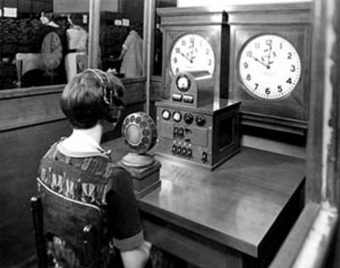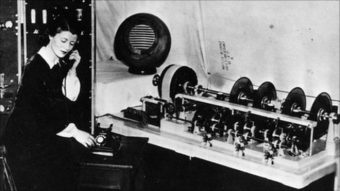Time to find out about the speaking clock
The service has a long and storied history and even today in the age of near ubiquitous smartphones and the internet it’s still called an astounding thirty million times per year.
Prior to the introduction of the UK speaking clock service in 1936, it’s noted that people wanting to know the time who didn’t have a clock or watch handy would simply call the exchange operator and ask, resulting in operators spending much of their time doing this, instead of routing calls.
With exchange operators being inundated with calls from people just wanting to know the time, it was evident from almost the moment telephones were first introduced and made available to the British public in the last years of the 19th century that an automated speaking clock system was needed. Unfortunately, the technology to record human voices wasn’t widely commercially available until around the mid-1920s. Even then, it would take until the mid-1930s for the Post Office, who controlled the telephone system in the UK at the time, to begin designing a machine that would accurately tell you the time audibly.
The speaking clock machine eventually constructed by the Post Office was relatively large and contained “state of the art” technology including using several electric motors, glass discs, various valves, and photocells. This system was evidently good enough that the service wasn’t upgraded until 1963, nearly three decades after it was originally introduced.
Ethel Cain and the Speaking Clock Machine
With the system designed, a voice was needed. As such the Post Office held a competition to “the girl with the golden voice”. No men were considered for the role as the telephone orientated jobs were still seen as a strictly female gendered profession back then. The winner of the contest would not only become the voice of the speaking clock, but also be given a prize of 10 guineas or about £700 today, a somewhat paltry sum given the billions (after adjusting for inflation) the service has earned in the ensuing decades since its genesis.
The woman chosen for the gig was one Ethel Jane Cain, a telephonist.
Of course lots has changed since then and things has become a little more modern, but I will leave yourselfs to do some of your own research if you want to know more.
Reference:http://ift.tt/29MPSVk
The post The UKs Speaking Clock appeared first on Crafty Puzzles Blog.
from WordPress http://ift.tt/2adkocW


No comments:
Post a Comment